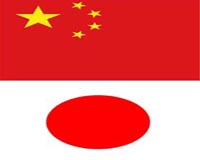| . |  |
. |
Washington (AFP) Feb 17, 2010 China may be flexing its financial muscle by cutting back on its massive holding of US Treasury bonds as tensions rise between the two powers on multiple fronts, some analysts say. China slashed its bond holding by 34.2 billion dollars or 4.3 percent to 755.4 billion dollars in December, fueling the biggest drop in the foreign purchase of short-term US bonds, according to Treasury data released Tuesday. It was also the biggest drop in Chinese bond holdings since August 2000 and allowed Japan to regain its position as the top holder of American government debt after a 15-month hiatus. Japan's holding increased to 768.8 billion dollars in December from 757.3 billion dollars the previous month, said the Treasury's latest international capital data report. The decline in the Chinese holding came amid deteriorating relations with the United States amid problems in several areas, and after Beijing expressed concern about the ballooning US fiscal deficit. Some analysts believe Beijing may be flexing its financial leverage on US President Barack Obama's administration. "The last few months of net sales of US Treasuries by China might also contain a subtle economic and political message to the US," Eswar Prasad, a trade policy professor at Cornell University and former head of the International Monetary Fund's China division, told AFP. "Chinese leaders are deploying their reserves to try and pressure the US to stop haranguing China about its currency and trade policies and to back off from interference in its domestic political and human rights issues," he said. In the latest US-China dispute, President Barack Obama's administration rebuffed Beijing's demand to cancel his meeting this week with the Dalai Lama. The deepening public spat over Tibet, a row over US arms sales to Taiwan, China's dispute with Google and trade and currency disagreements, come at a key diplomatic moment, as Obama seeks Chinese help to toughen sanctions on Iran over its nuclear program. "While China may reduce its holdings of US debt in order to send a signal to Washington -- though this is not necessarily the only reason it would do so -- it has no intention of selling debt to the point that it wrecks the US economic recovery, since doing so would destroy China's own economic and socio-political stability," analysts at US think tank Stratfor said in a note to clients. China is highly dependent on US export markets and invests the bulk of its nearly 2.4 trillion dollars in foreign exchange reserves in US bonds. The United States receives a large volume of low-cost imports from China while Beijing's Treasury bond holding virtually finances the snowballing US budget and current account deficits. Nicholas Lardy, a China expert at the Washington-based Peterson Institute for International Economics, told AFP that the December drop in China's Treasury bond holdings was "very small" and one should not read too much into it. Beijing also holds more than 400 billion dollars in US agency debt such as those of mortgage giants Fannie Mae and Freddie Mac, effectively making its bond holding much larger, to about one trillion dollars, he pointed out. In addition, Lardy said, the Treasury data might not include securities held in "street names." China has consistently raised concerns about the mushrooming US debt, fearing it could erode the value of the dollar and its Treasury holding. US Treasury Secretary Timothy Geithner traveled to Beijing in June last year to reassure Chinese leaders, saying their money is "very safe" despite the US budget deficit, which he pledged to cut. Obama, who inherited a US economy on the brink of collapse, is scheduled to sign an executive order Thursday establishing a bipartisan commission to study ways to reduce the deficit, which could hit a record 1.556 trillion dollars by the end of the 2010 fiscal year on September 30. "China's disposal of US dollars may reflect their concerns about being overly exposed to the US rising budget deficits," said Kathy Lien, director of currency research at Global Forex Trading. She said China, holder of the world's biggest foreign exchange reserves, bought and sold US dollars for both economic and political reasons. "It will be interesting to see if China continued to sell dollars as the greenback strengthened throughout January and into February because there is a good chance that they may have sold the low," Lien said.
Share This Article With Planet Earth
Related Links The Economy
 China's economic rise has silver lining for Japan
China's economic rise has silver lining for JapanTokyo (AFP) Feb 16, 2010 China is on the verge of unseating Japan as the world's number two economy, but student Shi Minfei is one reason why Beijing's rapid growth is not all bad news for its deflation-hit neighbour. With Japan's consumers keeping a tight hold on their purse strings, leaving the country as reliant as ever on exports, Chinese tourists like Shi are a rare example of good news for the country's long-s ... read more |
|
| The content herein, unless otherwise known to be public domain, are Copyright 1995-2010 - SpaceDaily. AFP and UPI Wire Stories are copyright Agence France-Presse and United Press International. ESA Portal Reports are copyright European Space Agency. All NASA sourced material is public domain. Additional copyrights may apply in whole or part to other bona fide parties. Advertising does not imply endorsement,agreement or approval of any opinions, statements or information provided by SpaceDaily on any Web page published or hosted by SpaceDaily. Privacy Statement |